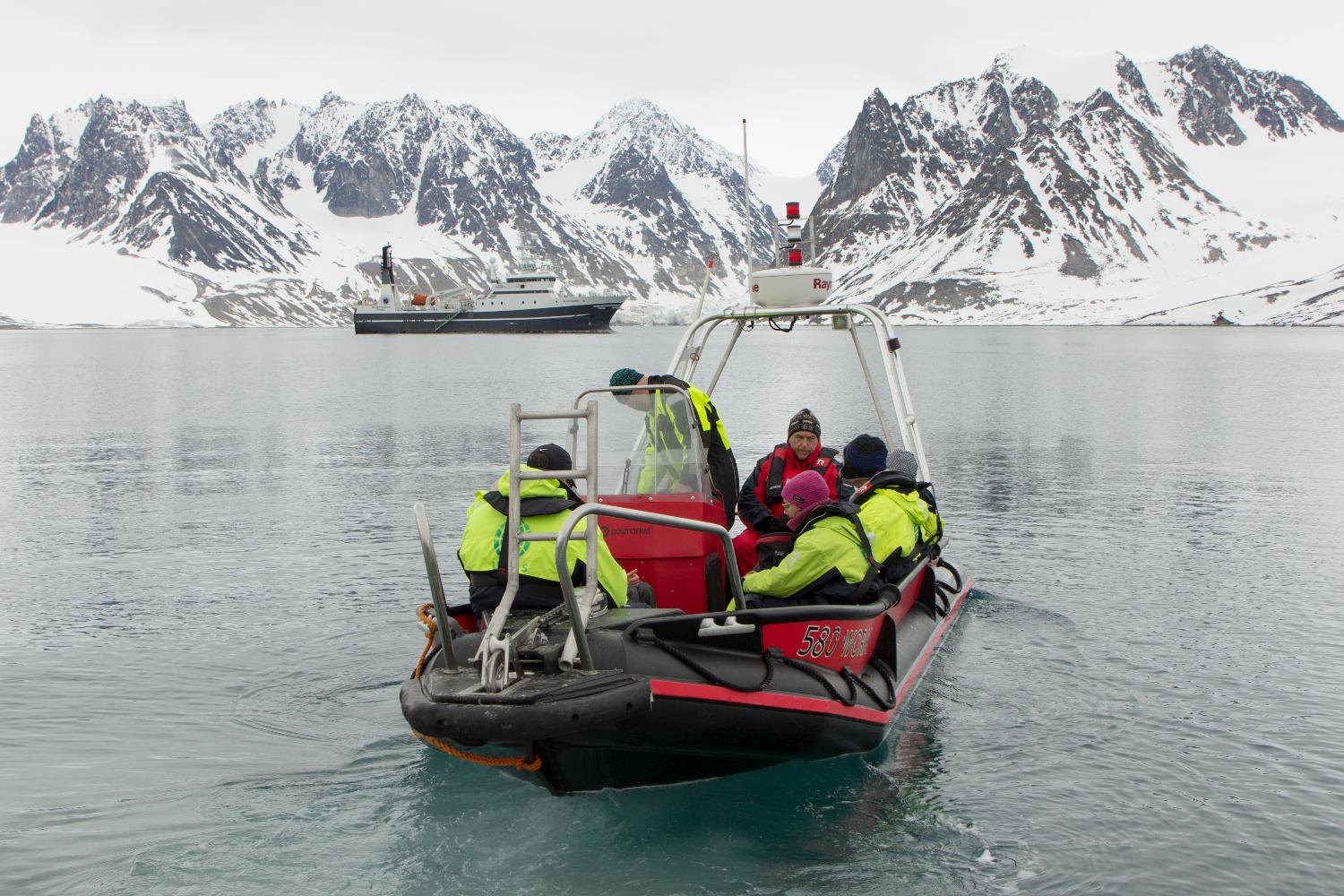PhD Programme in Natural Science
PhD Programme in Natural Science /Duration: 3 year(s) / Credits (ECTS): 180The PhD programme in Natural Sciences embraces diciplines like marine and terrestric biology, ecology, biotechnology, genetics, physiology, immunology, food science, and resource biology and management, as well as fishery and aqua culture technology.
In order to become a PhD candidate, you have to apply for a research fellow position that is advertised and get employed, or be employed at an external institution that will fund the PhD study.
The doctoral fellow positions are advertised on Jobbnorge.no and euraxess.
Length of study
Admission to the PhD programmes requires that the candidate has at least 5 years of university education, comparable to 300 ECTS. This means:
- 3-year bachelor degree (180 ECTS) and 2-year master degree (120 ECTS)
- 5-year integrated master’s degree (300 ECTS)
Other educations that are evaluated to be of equal extent and length may qualify for admission.
In all cases, the master's degree must contain an independent master thesis.
Experience-based master's degree
Experience based master's degree of 120ECTS may be the basis for admission, but this presupposes that the master's thesis is of sufficiently high quality.
Applicants who have completed a Norwegian experience-based master's degree of 90 credits can qualify for admission at 30 credits extension of the master's degree as follow:
- Written thesis (individual work) with a scope of 30 credits with a final exam.
- A scientific article/manuscript that has either been published, accepted or submitted to a scientifically recognized journal. The work will be assessed by the DC.
- Ordinary subjects at master's degree level.
Evaluation and approval of foreign educations
Candidates with a foreign education will be subjected to an evaluation of whether the educational background is equivalent to higher Norwegian education. The faculty uses national guidelines according to Nokut's country database and the GSU-list. Applicants from certain countries will have to document additional higher education in order to be admitted. Depending on which country, one or two additional years of university education may be required, e.g. 4 years bachelor degree and 2 years master’s degree.
Applicants who have completed higher education abroad shall be considered in line with Section 3-5 (3) of the University and University Colleges Act.
Grades
Applicants must have achieved B or better on the master thesis and have an average grade of B or better on subjects included in the degree. The average must be at least 3,5 according to the conversion table in section 35 in the regulations for study and examinations at UiT (A=5, B=4, C=3, D=2, E=1.)
For integrated master's degrees, applicants are required to have achieved a grade of B or higher on their master's thesis and an overall average grade of C or higher across all courses comprising the integrated degree programme (equivalent to 300 ECTS credits). This corresponds to a minimum grade point average of 3.0. The rationale for the slightly lower grade requirement for integrated master's degrees is that academic performance typically improves in the later stages of the programme.
For applicants with an abroad educational background where the assessment expression deviates from the Norwegian grading system, the grades must be assessed individually.
English language proficiency
Documentation of sufficient English Language proficiency is required in order to be admitted to PhD studies. Requirements are either fulfilled by formal education or by obtaining a high enough score on an international recognized test.
Applicants from Nordic countries, English speaking countries and some other countries are exempted from providing a test. The GSU-list informs of which countries are exempted from English tests. In addition, if the master’s thesis has been written in English and English has been used as the language of instruction in the master’s programme, English tests are not generally required.
Funding of PhD
Admission to organized PhD programmess at UiT requires sufficient funding. For PhD candiates employed at UiT, all financial aspects are usually taken care of. UiT funded PhDs are either funded by UiT or externally funded by projects (NFR, EU and other funding institutions). A budget must be included in the application for final admission in order to show the use of the funding.
External PhDs, i.e. fellows with a different employer than UiT, are asked to provide documentation that the PhD is adequately funded. The PhD regulations states that the funding should be similar to costs of UiT funded PhDs. Funding shall cover salary costs, operating costs and overhead to the faculty.
Program description
The PhD programme in natural sciense is 180 ECTS and consists of an instruction component (30 ECTS) and a research project that shall result in a thesis (150 ECTS).
The research project constitutes the main part of the study and is conducted under supervision of two or more supervisors. Often the PhD project is part of a larger research project and you will gain support from other research colleagues as well.
The instruction component consists of courses and the composition is individually adjusted. It is manadatory with training in science, ethics and dissemination.
At the end of the study the candidate shall give a trial lecture on an assigned topic and defend the thesis in a public defense.
PhD candidates employed at the university often have 25% duty work in addition. The duty work is mainly teaching, but it can be other tasks as outreach, recruitment or administrative work.
Learning outcomes
Candidates who have completed the PhD programme in natural science at BFE-fak shall have the following learning outcome defined in knowledge, skills and general competence:
Knowledge – the candidate
- is at the forefront of knowledge within his or her discipline
- has insight into relevant topics concerning research ethics
- has general knowledge of science philosophy, how to approach problems and research methods
- is capable of evaluating the suitability and use of subject-specific methods and processes, both in research and in development projects
- can contribute to the development of new knowledge, new theories, methods and interpretations within the discipline
Skills – the candidate
- is capable of preparing scientific publications and disseminate research in acknowledged national and international publication channels
- is able to disseminate knowledge and research results to a general audience
- is capable of formulating research questions, plan and carry out, research and development projects at a high international level
- is able to analyze complex scientific questions and challenge established knowledge and practices within his or her research field
General competence - the candidate
- is able to make decisions on scientific and complex foundations
- can carry out his or her research with professional integrity
- has the skills to manage projects and processes in line with ethical requirements and guidelines
- is able to work interdisciplinary and view his or her research in a wider and holistic context
- is able to work in international research groups and can take part in debates within his or her discipline in international forums
- has competence in the management and administration of projects, networking and public outreach
Job prospectives
A doctoral degree qualifies for high positions in business life, management, higher education and research
Degree Name
Philosophiae doctor (PhD) in Natural ScienceStudieplan
Foreløpig ikke tilgjengeligTeaching and assessment
The PhD work is carried out under the supervision and shall result in a thesis.
Forms of instruction in the PhD courses varies between diciplines, but the most common are lectures, seminars, and teamwork, but some courses also include laboratory work, cruices and field work.
Halfway into the study, a midway evaluation shall take place.
The instruction component needs to be completed and approved before the thesis can be submitted for evaluation. If the thesis is found worthy of a public denfense, the candidate shall give a trial lecture on an assigned topic. When the candidate has given the trial lecture and got it approved, he / she is going to defend the thesis in a public defense.
Studiesteder du kan utveksle til

Ingjerd Gauslaa Nilsen
Seniorrådgiver, ph.d.-utdanningen ved BFE-fakFølg @uitstudent på Instagram eller TikTok for å få et enda bedre innblikk i hvordan det er å studere på UiT. Her viser studentene fram sin studiehverdag, deler tips og nyttig informasjon, og du kan stille spørsmål om alt du måtte lure på.
Sjekk også @uitnorgesarktiske på Instagram eller TikTok for info om studier, jobbmuligheter og forskning.



